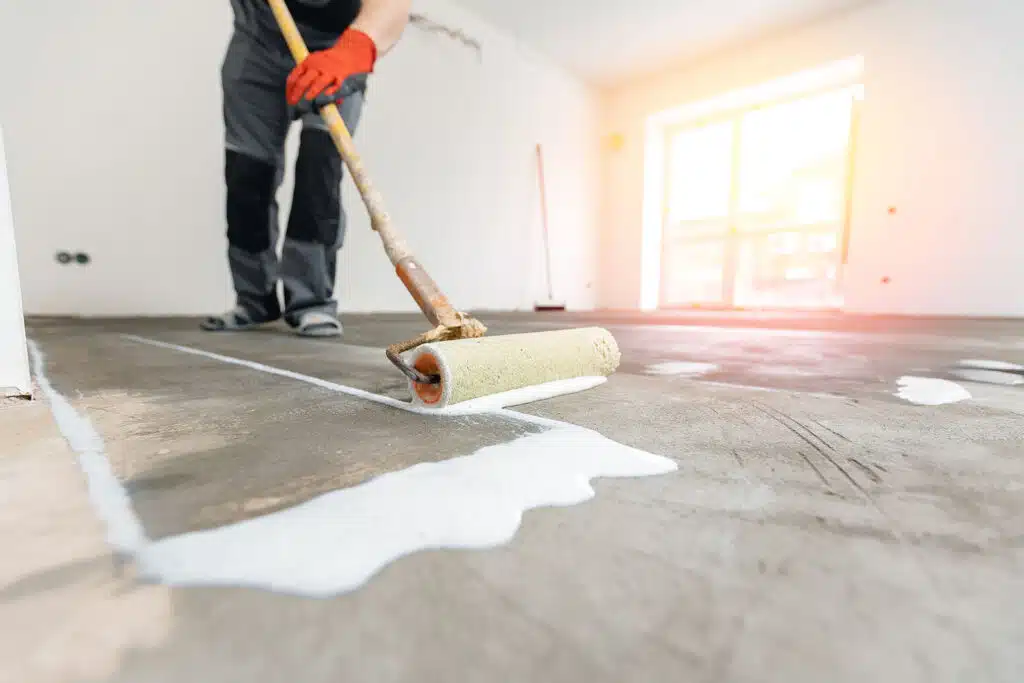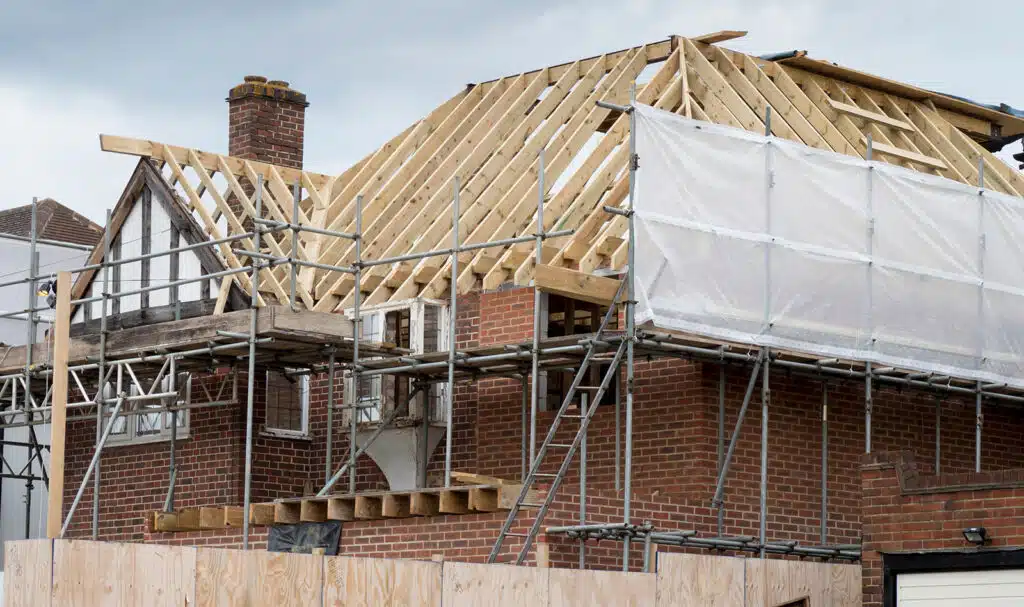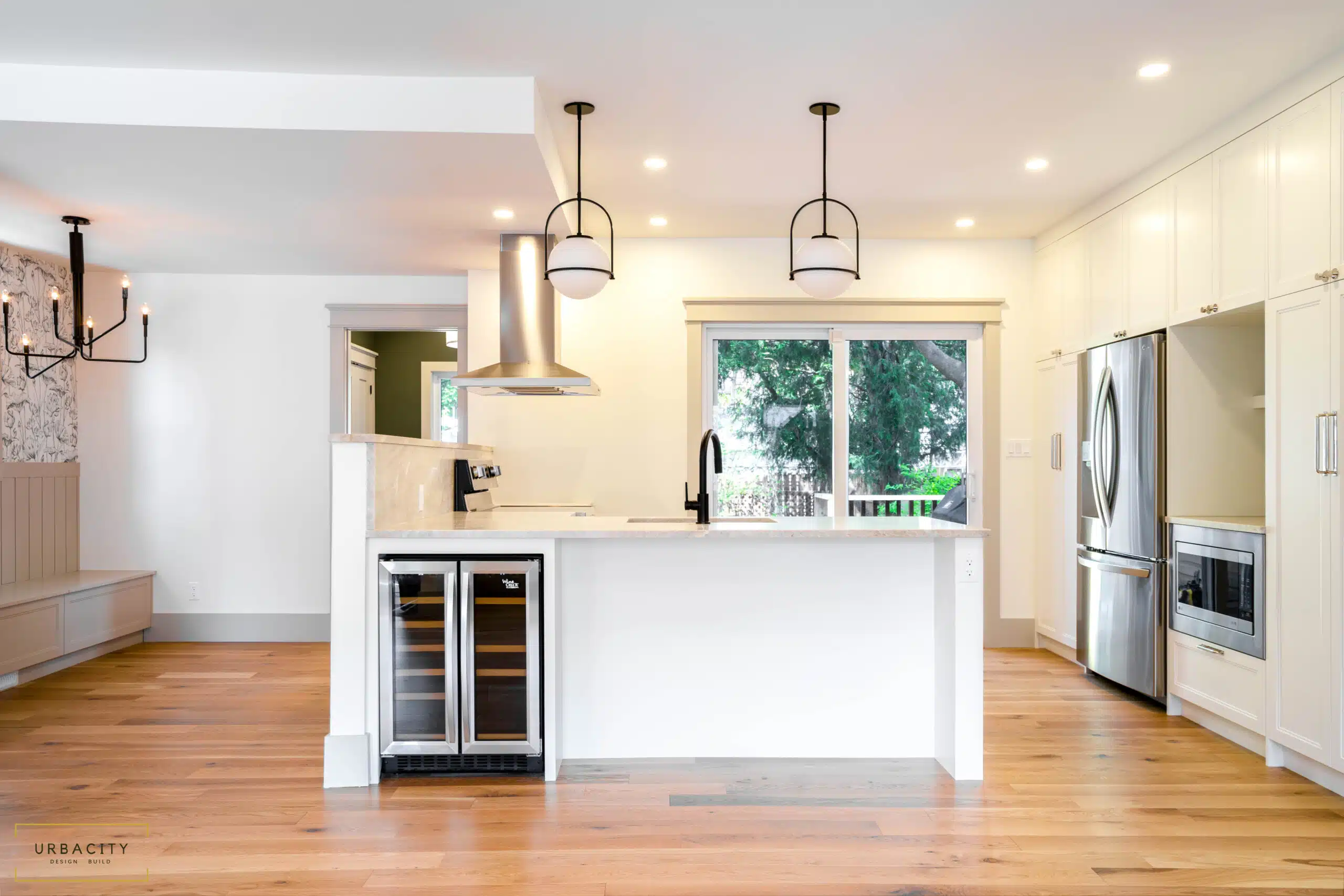Trying to decide whether to renovate, rebuild, or move is not always easy.
Ever fantasize about how you’d redesign your home if you could? Maybe shifting around the layout in a renovation would do it. Or maybe you’d like to raze the current house and start from scratch. Or maybe the effort involved in renovating or rebuilding is just too much and it would be simpler to sell and move on.
Houses have lifecycles and need maintenance and work just like everything else. Knowing when to undertake a major renovation, rebuild or move on can be difficult and stressful. Your house is the largest purchase you will make in your lifetime and you want it to be a source of pride and peace of mind.
Weighing the Options
When considering the next chapter for your current home, the charm of older homes often leaves homeowners at a crossroads. To renovate or remodel, aiming to transform that old house into your dream home? Or perhaps, take a more drastic approach, demolish the existing house, and venture into a new build? Maybe even hunting for a new home or new house in the real estate market with the help of a trusty real estate agent might be the path for you.
The mere thought of undergoing a home renovation project can be time-consuming and a real hassle, especially for homeowners in Canada, where approvals for structural alterations can be stringent. There’s the concern of asbestos lurking in old materials or discovering unexpected structural issues when you tear down walls.
Homeowners are also starting to lean more towards energy efficient designs when they renovate or remodel. An energy-efficient home design can greatly increase the value of your home. Think about it: Would you prefer a kitchen remodel that simply updates the space or one that makes it more functional, modern, and energy-efficient?
Before diving headfirst into a home renovation or home build, consulting a general contractor is always advised. They have the expertise to assess whether the floor plan you desire in your remodel is feasible or if it would be more practical to knock down and opt for new construction.
Upgrades to an old home might seem enticing in the short term, but sometimes starting with a brand new home can offer greater functionality and less future hassle. Plus, the prospect of relocating to a perfect home, designed just for you, certainly has its allure.
On the flip side, the journey of home improvement can be deeply personal and rewarding. DIY enthusiasts often find a great deal of satisfaction in restoring and enhancing their current living spaces, be it revamping a cozy living room or even the whole house.
One crucial aspect that shouldn’t be overlooked is the resale value. A well-thought-out renovation project can boost the value, but it’s imperative to ensure that your upgrades align with what future buyers might want.
Lastly, it’s essential to weigh the upfront costs and potential returns. While a brand new home might require a more significant initial investment, the long-term benefits in terms of modern features, energy efficiency, and personal satisfaction might just make it worthwhile. Remember, whether you’re aiming for a comprehensive home renovation, a fresh new build, or hunting for a new house, the ultimate goal is to find or create your dream home.

When to renovate
If you’re happy with the size of your home but can’t take the dated decor or impractical layout, renovation is the way to go.
The size and scale of the issues that need solving will determine your budget and duration of the renovation. Keep in mind that a large renovation can take six months or more and will usually require you to be out of the house for the duration.
Most people assume a renovation is more cost-effective than a rebuild, but this is not always the case. It depends on the size of the renovation, the age of the home, and any unforeseen issues that can come up. Once the walls are opened up, if we see issues with things like electrical, plumbing or structural supports, those need to be dealt with, even if they weren’t part of the original plan.
This is why it’s important to budget not only for your wants but also for your needs; there are always surprises in a renovation. A good contractor will be able to help minimize the surprises and, if all goes well, that extra you saved as a contingency fund can be put to upgraded finishes or furniture at the end of the project.
Need some guidance on options for financing your renovation? Canada Mortgage and Housing offers some ideas.

When to rebuild
Rebuilding may be the best move if the space is too small and several parts of your home are at the end of their life. A growing family in a neighborhood they love may make the decision to rebuild from the foundation up (or even start from scratch) to get the space they need while still staying in their neighbourhood.
If you already need a new roof, windows, kitchen and two more bedrooms, rebuilding will likely provide the best value for money. It’s important to take a step back, figure out what you will need now and in the future in your home and work with a designer to determine whether rebuilding is the best option for you and your budget.
It’s better to get all the details sorted out first before making a hasty decision. Here’s one homeowner’s tips after tearing down and rebuilding their home.

When to move
Sometimes the best option is just to find somewhere else to live. This is a very personal decision, but if you’re able to find exactly what you are looking for, in the neighbourhood you want to be in, for the right money, this may be the best option for you. And while moving may be disruptive, it’s certainly far less disruptive than a months-long renovation or rebuild.
Of course, given the current housing market in Ottawa, moving is easier said than done, depending on where you want to live.
Navigating these options can be exciting and fun — or stressful and heartbreaking if you don’t get what you want. Understanding what you want versus what you need is crucial and being realistic about what you can afford helps ensure your peace of mind throughout the process.
We are experts in both renovations and rebuilds. With us on your side, navigating the waters of home construction becomes exciting and fun instead of stressful and heartbreaking.
Conclusion
The journey of transforming a house into a home is multifaceted and deeply personal. Each homeowner faces a unique set of circumstances, desires, and constraints. Whether you’re looking to breathe new life into an older property through renovation, start anew with a rebuild, or seek fresh beginnings in a different home entirely, the decision is rarely straightforward. The key is to be informed, understand the intricacies of your own situation, and lean on experts when necessary. After all, your home is not just a structure; it’s a reflection of your life, dreams, and memories. Whatever path you choose, make it one that leads you closer to the sanctuary you envision. Remember, home is where the heart finds its peace, and every effort invested towards it is a step closer to your dream dwelling.
FAQ
How much does it cost to tear down a house and rebuild it?
The cost of tearing down a house and rebuilding it in Canada can vary widely depending on a number of factors including location, size, design, and materials. Here’s a general breakdown:
- Demolition Costs in Canada:
- Average Range: Demolition costs in Canada can range from CAD 10,000 to CAD 30,000 for a standard residential home. Costs can be higher for larger or more complex structures.
- Factors Influencing Cost: The presence of hazardous materials like asbestos, the need for extensive site cleanup, local regulations, and the necessity to disconnect utilities can all impact the cost.
- Rebuilding Costs in Canada:
- Average Range: Rebuilding costs in Canada can vary greatly. On average, building a new home can cost anywhere from CAD 150 to CAD 300 per square foot, though luxury or custom builds can exceed CAD 500 per square foot.
- Factors Influencing Cost: The cost will depend on factors such as the size and design of the new home, the materials chosen, the complexity of the build, local labor rates, and the cost of permits and inspections.
- Additional Costs: Architect fees, landscaping, driveways, and utility connections can also add significantly to the total cost.
- Permits and Fees:
- Average Range: Permit and fee costs can vary significantly by municipality. Expect to pay several thousand dollars for building permits, inspections, and other necessary approvals.
- Other Considerations:
- Site Preparation: Additional costs may be incurred for preparing the building site, especially if the land requires leveling, tree removal, or dealing with rocky terrain.
- Geographical Variations: Costs in major urban centers like Toronto or Vancouver are typically higher than the national average due to higher labor costs and more stringent building requirements.
As a rough estimate, if you were to demolish a 2,000 square foot home and rebuild it at an average cost of CAD 200 per square foot, you might expect the rebuilding alone to cost around CAD 400,000, plus demolition and additional costs.
It’s important to consult with local contractors and get multiple quotes to get a more accurate estimate for your specific project, as costs can vary greatly depending on the individual circumstances.

You must be logged in to post a comment.